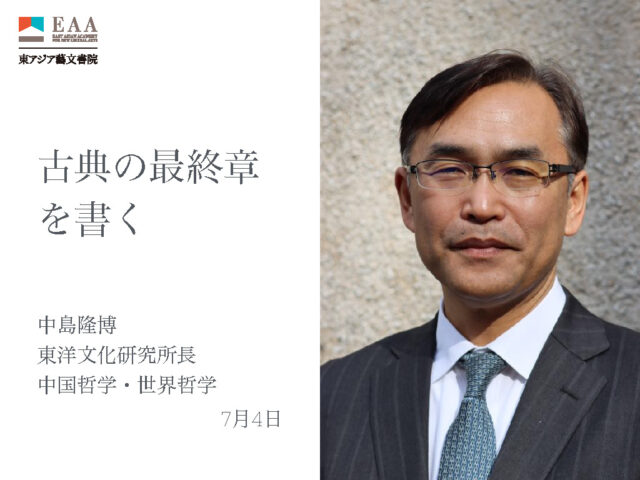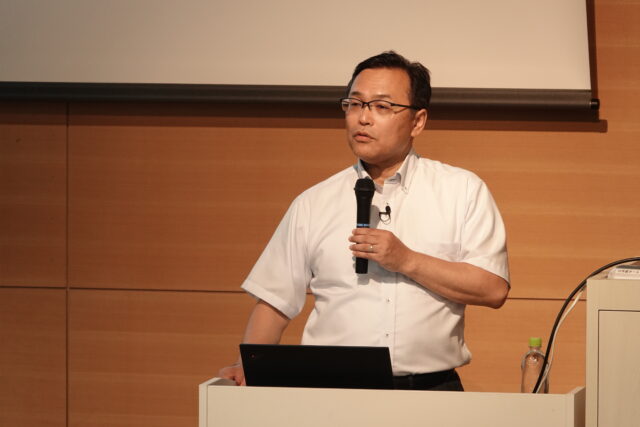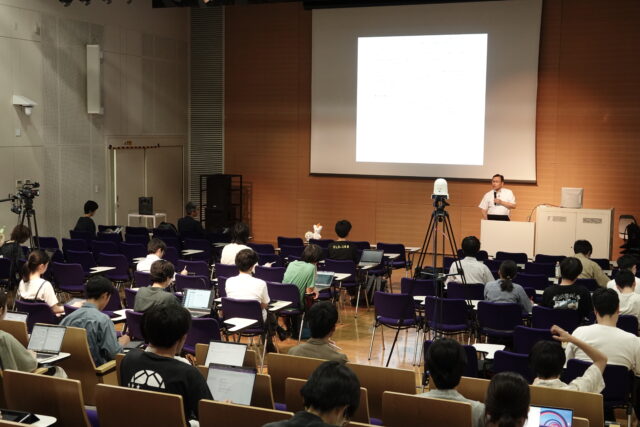
On July 4, 2025 (Friday), EAA held the 12th session of the 2025 Academic Frontier Lecture Series, titled “Toward the World 30 Years from Now: The Changing Kyoyo, the Changeable Kyoyo” at the Komaba Campus. The featured speaker, Professor Takahiro Nakajima, Director of the Institute for Advanced Studies on Asia, delivered a lecture titled “Writing the Last Chapter of the Classics.”

The lecture opened with the question: “Was a person who spent their entire life reading the Thirteen Classics truly happy?” Using this question as a starting point, Prof. Nakajima explored how the development of AI and the Internet has changed the nature of knowledge, shifting the conception of kyoyo (liberal arts) away from the ideal of hakuran kyoki (博覧強記, encyclopedic knowledge and strong memory). He emphasized that “thinking” is not a solitary act but happens through friendship and interaction with others. Behind the Cartesian ideal of the “perfectly autonomous individual (integrity)” lies a dimension of “intimacy,” where individuals engage with others, influence each other, and change together. Extending this idea, Nakajima argued that AI and animals should not simply be seen as tools but as genuine “others” with whom we form relationships, transforming ourselves and discovering a “plurality of selves.” Through these relationships, we open up spaces for shared thinking—an essential task in our time.

Prof. Nakajima also argued that we should approach the classics not through the lens of hakuran kyoki-style “integrity” but with “intimacy”, thinking alongside them. Quoting Thomas Kasulis’s words, “A classic is a work whose last chapter is always written by its readers,” he stressed that the question of how we continue to “write the last chapter of the classics” is a core challenge for kyoyo today. During the Q&A session, participants explored whether “thinking together” is truly possible without conditions and discussed practical approaches to fostering communities of shared thinking within contemporary society.
Photograph and Report by Shinhye Hong (EAA Research Assistant)








